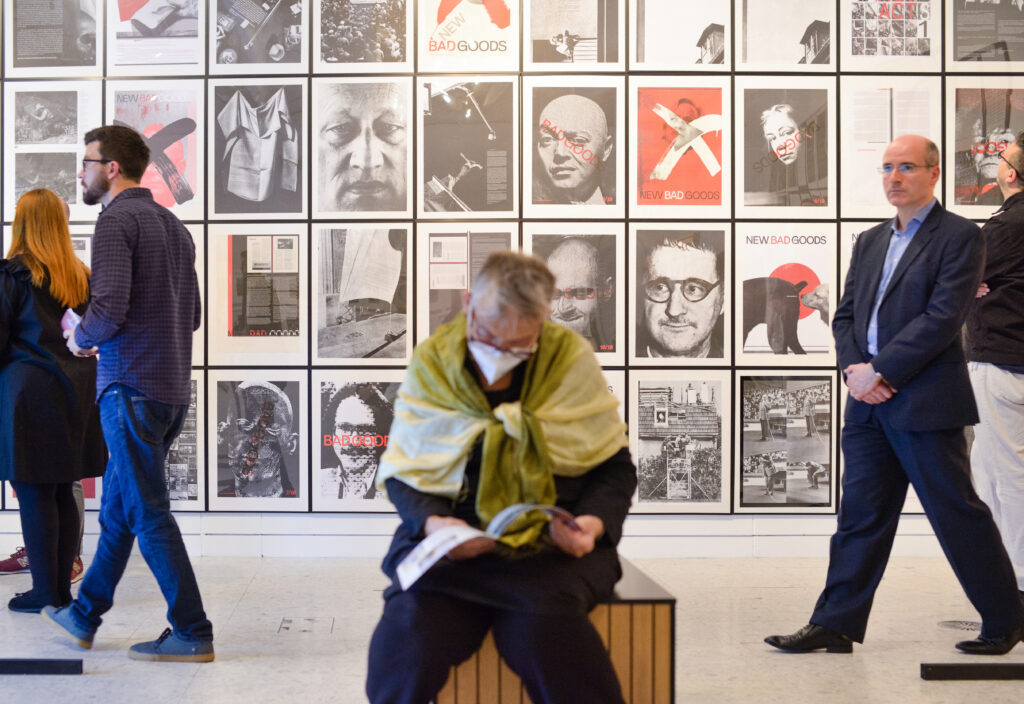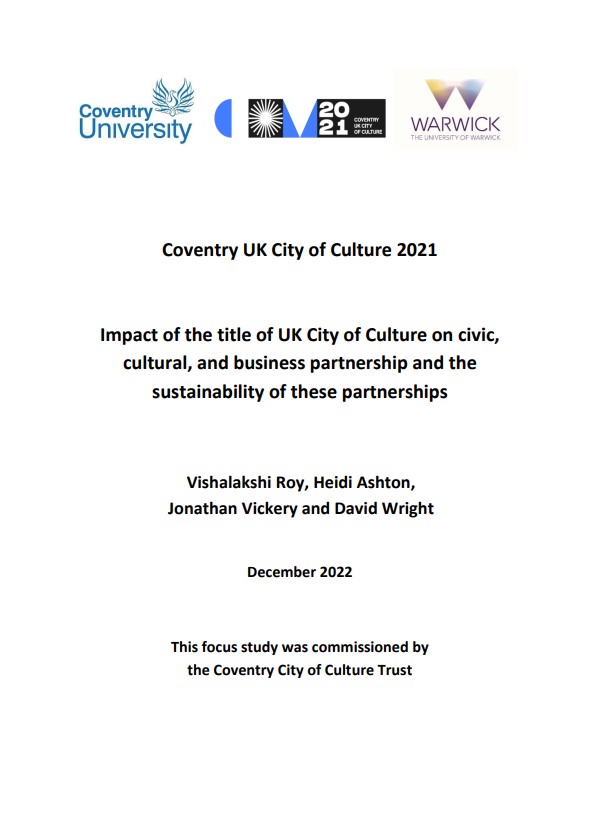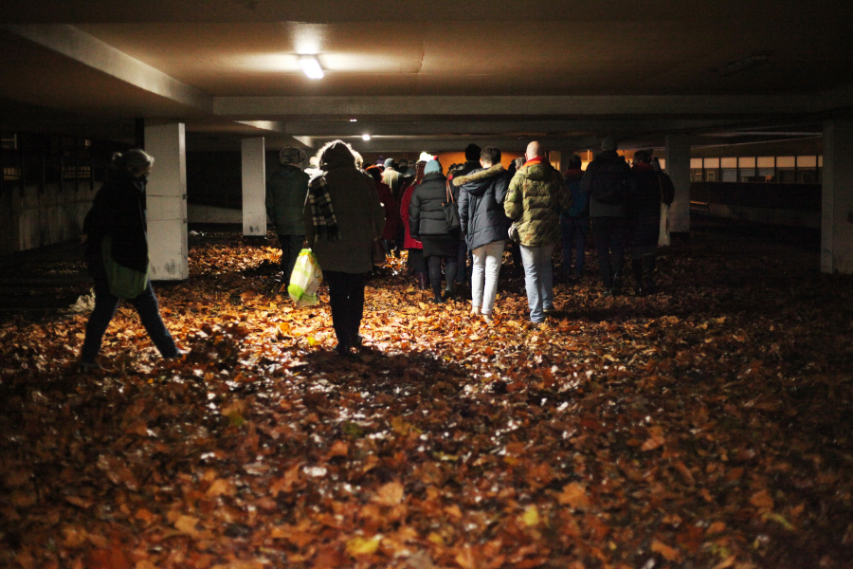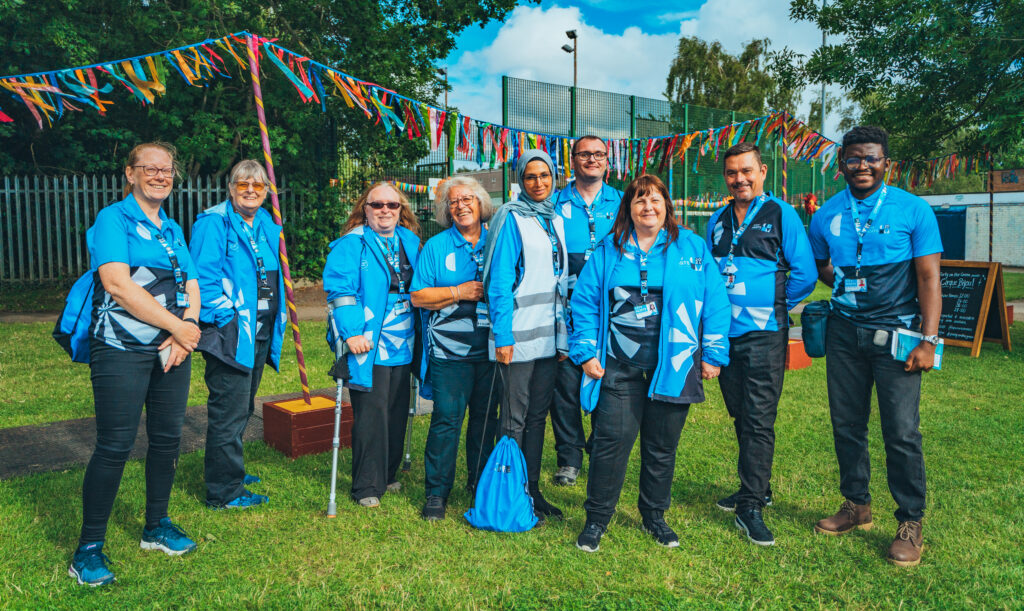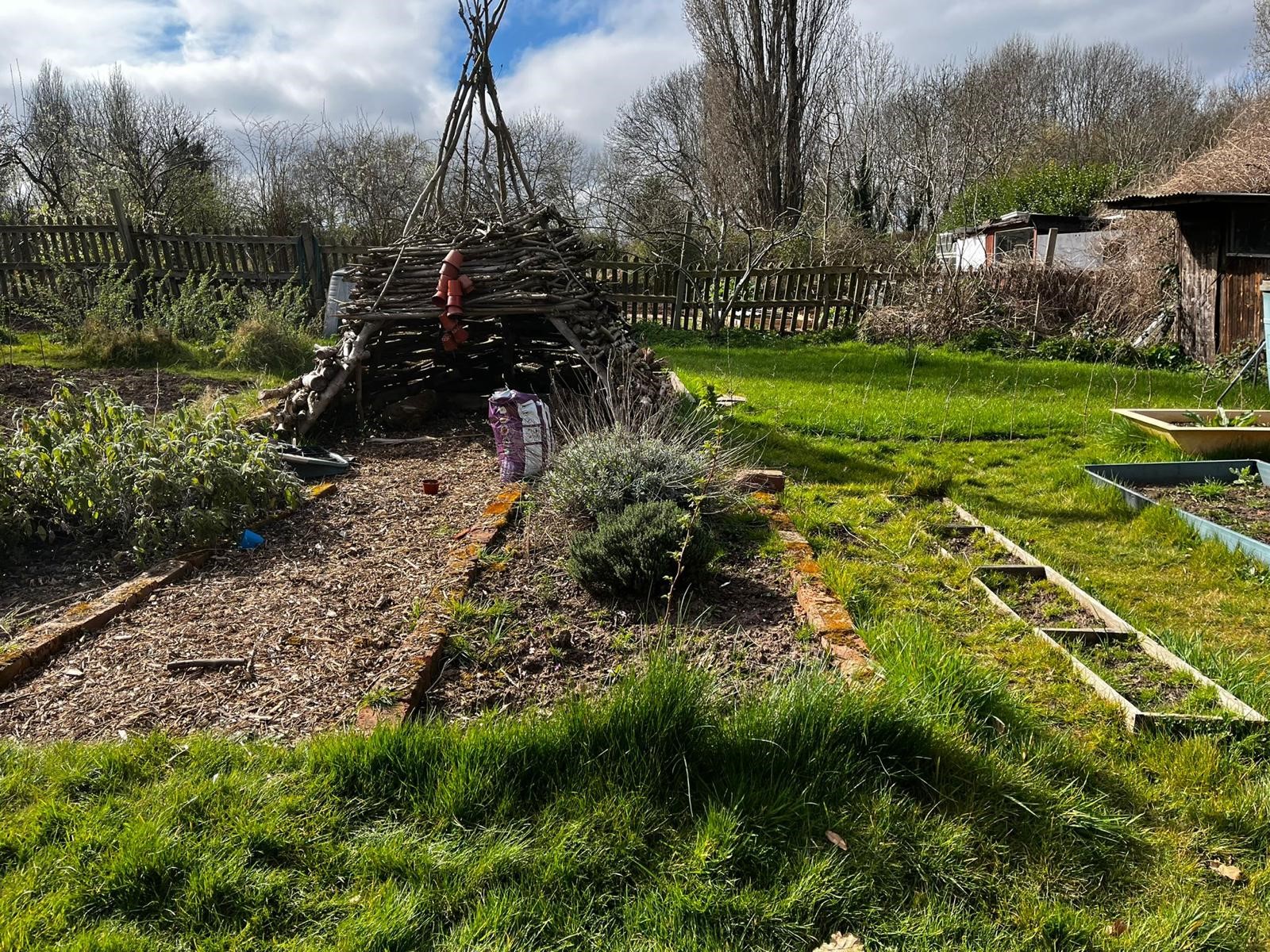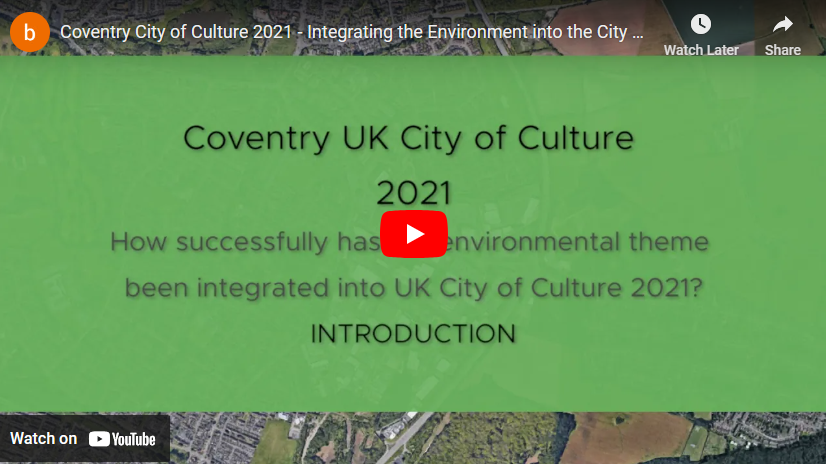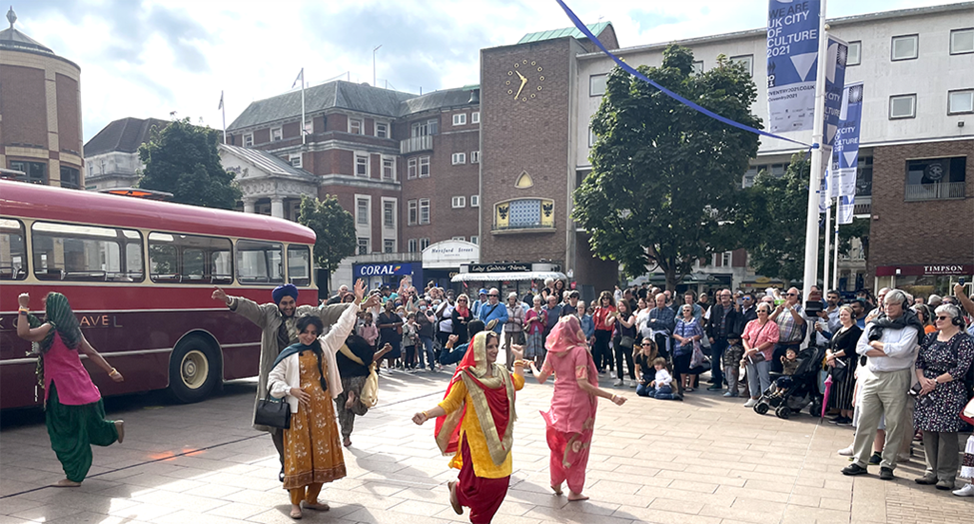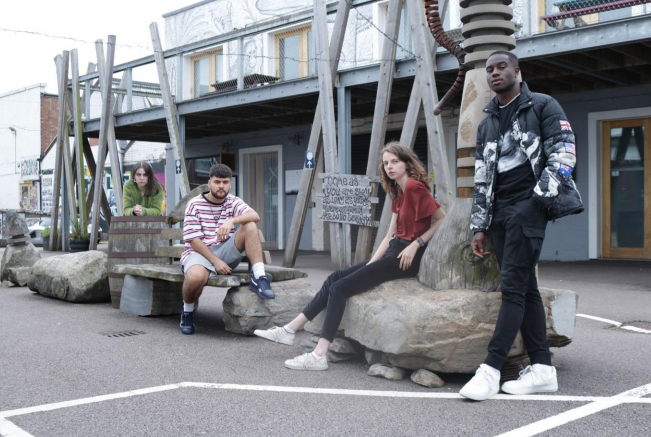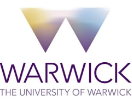Focus Study: Civic, Cultural and Business Partnerships
Jeffrey Charles Henry Peacock − Detail With Audience, Coventry Biennial (Photograph: Marcin Sz)
Report and Webinar
The Civic, Cultural and Business Partnerships focus study report was released in February 2023. It is one of a series of focus study reports.
The research team presented its results via a webinar on 25 January 2023.
Civic, Cultural and Business Partnerships Focus Study Report
Research Question
What effect has the title of UK City of Culture had on civic, cultural and business partnership co-working and to what extent can these partnerships be sustainable?
Background
This focus study has worked with four specific bodies within Coventry’s civic, cultural and business communities.
It identified the impact of the title in developing and strengthening their operations, networks and partnerships and assessed their value and sustainability.
Aim
The aim was to include participants, existing networks and communities of practice relating to Coventry’s civic, cultural and business life, which preceded UK CoC 2021, and which were expected to extend beyond it. These were groups upon which UK CoC 2021 expected to have a material impact, but which had significantly different expectations of its programme:
- One strand worked with the British Council, a civic body, and investigated the work of the organisation in developing its relationships, networks and activities in the city during the year of cultural activity.
- Coventry Biennial, the city’s only contemporary visual arts festival, provided a second strand with details of the effect of the UK CoC 2021 title on the 2021 festival and how it impacted upon its networks and vision for the future.
- A third strand involved working with two business entities in the city − Coventry BID and Fargo Village − to understand the impact on, and compare the experiences of, their business communities in relation to the UK CoC 2021 title in developing and sustaining partnerships.
Approach
This three-part qualitative study was carried out through a series of in-depth interviews with staff and a range of new and existing partners of the four organisations. The research team specifically focussed on partners and protagonists away from the larger city institutions to ensure that diverse voices were included in articulating the overall impact of the title on the city.
Initial contact with the organisations and their networks was made from June to December 2021, while consultations were carried out through in-depth interviews using a semi-structured interview guide between February 2022 and June 2022.
Findings
The findings tell an ‘insider’ story of the expectations, experiences and effects of the programme and its role in re-imagining the future of Coventry. Overall the study provides valuable insights into how a city of culture title impacts on the operations, growth, ambitions and future vision for different types of entities that interact with, and take a visible role during, a city of culture programme.
British Council
- UK CoC 2021 enabled a range of international collaborations to be explored.
- There are many international organisations and agencies in Coventry that are not connected to any substantial city strategy.
- The city lacks an internationalisation strategy which is key to providing pathways or objectives for their partnership.
- Internationalisation can appear only to involve ‘people from outside’ and not also those within the city.
- There remains an ambiguity on what ‘sustainability’ means for culture in the city.
- Understanding is needed on how international connections and relationships become something concrete for the city.
- The city’s arts sector suffers from small-scale project-based work, which does not create sustainable ‘cultural sector’ development.
- The city’s huge international student population should be an asset for the city, but remains difficult to engage.
Coventry Biennial
- The title galvanised and gave momentum to the cultural sector in the city, creating a sense of pride, energy and dynamism.
- It had made Coventry a more attractive venue for visual artists and made the Biennial, and visual arts in Coventry, more visible to influential national and international partners.
- The title gave the Biennial organisation impetus and ambition to its strategic plans for growth.
- It highlighted the importance of informal networks and relationships with individuals to a thriving cultural ecology.
- The research highlighted anxiety about the future sustainability, once the spotlight and funding of the year had passed, especially for local artists and creatives.
Coventry BID and Fargo Village
- For FarGo it was a catalyst for greater aspirations and ambitions in their future events planning and strategies for growth.
- The title, visibility and subsequent high-profile events encouraged greater professionalism in their approach to marketing and business strategies.
- For Coventry BID it attracted greater investment in infrastructures, building conversions and attracted new businesses and brands.
- For both organisations, the UK CoC 2021 title provided hope for businesses emerging from the pandemic.
- The title and related activities revealed the importance of (and strengthened) networks within a business community.
Conclusions
The effects of the UK CoC 2021 title on the city were felt across all three types of entities, as they impacted on the scale and scope of their operation.
All four organisations worked with new collaborators and partners (e.g. national and international artists, residents from other international cities, arts professionals, and press and media).
They all underlined the importance of their existing partnerships in supporting their activities and believe that they have been strengthened during the year.
The sustainability of any new ways of working, collaborations and partnerships formed through UK CoC 2021 has been queried. How far they continue without the funding, specific plans for future activity, and the external visibility brought about by the UK CoC 2021 is a matter of some debate.
Acknowledgements
The research team was based at the Centre for Cultural and Media Policy Studies at the University of Warwick. The focus study was led by Dr Vishalakshi Roy; her fellow researchers were Dr Johnathan Vickery, Dr David Wright and Dr Heidi Ashton.


